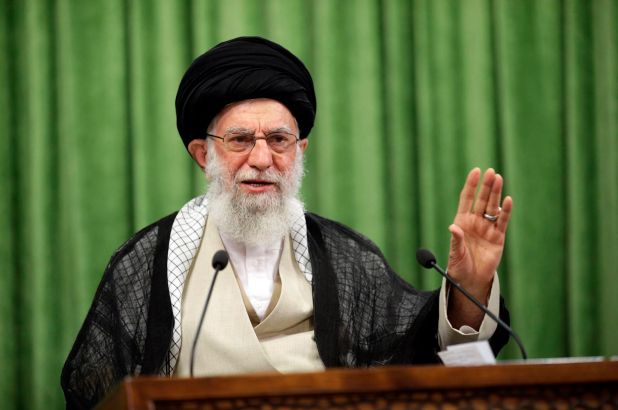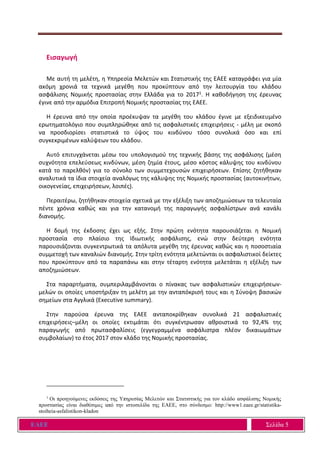Stephen Miller In Line To Become National Security Advisor: Examining The Speculation

Table of Contents
Miller's Policy Positions and Their Implications for National Security
Stephen Miller's hardline policy stances, particularly on immigration, are well-documented. Understanding these positions is crucial to assessing the potential impact of a Miller-led National Security Council.
Immigration Policy: A Foundation of His Ideology
Miller's unwavering commitment to restrictive immigration policies is a cornerstone of his political identity. This approach, if implemented nationally through the National Security Council, could significantly alter US national security strategies.
- Impact on international relations with Mexico and Central America: A Miller-led NSC might prioritize border security above diplomatic engagement, potentially straining relationships with neighboring countries and hindering cooperation on issues such as drug trafficking and transnational crime.
- Potential effects on refugee and asylum policies: His history suggests a drastic reduction in refugee resettlement and asylum applications, potentially violating international human rights standards and damaging the US's global image.
- Consequences for border security and national defense: While increased border security might be a stated goal, a solely security-focused approach could neglect the broader strategic considerations necessary for effective national defense.
Foreign Policy Views: A Landscape of Uncertainty
While Miller's immigration views are clear, his broader foreign policy perspectives are less explicitly defined. However, based on his past statements and actions, we can infer potential approaches.
- His potential approach to relationships with key allies (e.g., NATO, European Union): Miller’s skepticism towards multilateral organizations and international cooperation suggests potential challenges in maintaining strong alliances and collaborative efforts.
- His likely stance on specific geopolitical issues (e.g., China, Russia, the Middle East): His approach to these complex issues remains largely speculative, but an isolationist or protectionist stance wouldn’t be surprising based on his known preferences.
- Potential shifts in US foreign policy under his leadership: A Miller-led NSC could prioritize unilateral action, potentially isolating the US on the world stage and undermining existing international agreements and partnerships.
Assessing Miller's Qualifications and Experience
The most significant hurdle to Stephen Miller's potential appointment is the glaring absence of traditional national security experience.
Lack of Traditional National Security Experience: A Major Concern
Unlike previous National Security Advisors, Miller's resume lacks the extensive background in military affairs, intelligence, diplomacy, or foreign policy typically associated with the role.
- Compare his background to that of previous National Security Advisors: A comparison highlights the stark contrast between Miller's primarily domestic policy background and the extensive experience of his potential predecessors.
- Highlight the potential challenges arising from this lack of experience: This lack of experience could lead to ill-informed decisions with potentially disastrous consequences in complex geopolitical situations.
- Mention any relevant experience he does possess (e.g., policy advisor roles) and how it might be applied: While his experience as a policy advisor offers some insight into policy formulation, it does not equate to the broad-based expertise needed for national security.
Potential Advisors and Influence: Mitigating Risks?
The individuals surrounding Miller, if appointed, could potentially mitigate some of the risks associated with his lack of experience. However, this is a double-edged sword.
- Mention potential key figures within his circle: Identifying potential advisors is crucial to understanding the possible influence on his decisions.
- Discuss their expertise and likely policy viewpoints: Analyzing their backgrounds and potential policy viewpoints offers a further lens for understanding the potential direction of the NSC.
- Assess their potential influence on Miller's decision-making: Determining the degree of influence these figures might exert is key to forecasting potential policy outcomes.
Political Ramifications and Public Reaction
The potential appointment of Stephen Miller as National Security Advisor is fraught with political ramifications and would almost certainly elicit strong public reactions.
Political Fallout and Controversies: A Predictable Storm
A Miller appointment would likely trigger significant political fallout, sparking intense debate and controversy across the political spectrum.
- Reactions from Democrats and Republicans: The response from Democrats would almost certainly be overwhelmingly negative, while some Republicans might support the appointment.
- Potential impact on the upcoming elections: Such a controversial appointment could significantly influence public opinion and impact voter turnout and electoral outcomes.
- Public opinion polls and surveys related to Miller’s appointment: Existing polls and future surveys tracking public opinion on a potential Miller appointment will offer further insight into the potential political consequences.
Impact on the Biden Administration (if relevant): Internal Strife and International Backlash
If appointed within the current administration, the appointment would almost certainly cause significant internal divisions and damage the administration’s image both domestically and internationally.
- Internal divisions within the administration: Miller's hardline stances could create significant friction with other administration officials.
- Potential challenges to the President's agenda: His policy preferences could directly conflict with the President's overall agenda.
- Impact on international perceptions of the US: A Miller appointment could seriously damage the United States’ image on the global stage, undermining its international standing.
Conclusion: The Future of the Speculation: Stephen Miller as National Security Advisor
The possibility of Stephen Miller becoming National Security Advisor presents a complex and concerning scenario. His lack of traditional national security experience stands as a major obstacle, raising serious questions about his suitability for the role. His hardline policy positions, particularly on immigration, could dramatically reshape US domestic and foreign policy, potentially leading to strained international relations, damaged alliances, and significant internal political conflict.
The speculation surrounding Stephen Miller as National Security Advisor demands careful consideration. Stay informed about further developments and share your thoughts on this critical issue. The future of US national security may well depend on the answer.

Featured Posts
-
 Red Sox Cardinals Trade Solving Bostons Bullpen Woes
May 18, 2025
Red Sox Cardinals Trade Solving Bostons Bullpen Woes
May 18, 2025 -
 Daily Lotto Results Sunday 27th April 2025
May 18, 2025
Daily Lotto Results Sunday 27th April 2025
May 18, 2025 -
 Taran Killam On His Important Relationship With Amanda Bynes
May 18, 2025
Taran Killam On His Important Relationship With Amanda Bynes
May 18, 2025 -
 Find 50 Free Spins No Deposit Bonuses At Non Gam Stop Uk Casinos
May 18, 2025
Find 50 Free Spins No Deposit Bonuses At Non Gam Stop Uk Casinos
May 18, 2025 -
 Eyropaiki Naytilia Gigantiaia Megethi Kai Statistika
May 18, 2025
Eyropaiki Naytilia Gigantiaia Megethi Kai Statistika
May 18, 2025
